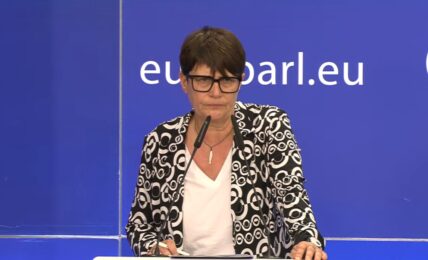In a communique issued by G7 Climate, Energy and Environment Ministers following meetings hosted in Berlin last week, the ministers announced a series of commitments aimed at accelerating the decarbonization of their economies and advancing global net zero goals, including pledges to substantially decarbonize energy grids by the middle of next decade, and to work towards ramping the development of low carbon hydrogen, particularly for use in hard-to-abate sectors. The meeting also resulted in a first-ever commitment to phase out coal-fired power generetion.
The summit brought together energy and climate officials from G7 countries Canada, France, Germany, Italy, Japan, the UK, the U.S. and the EU, with this year’s meeting focused on actions to address the “triple global crisis climate change, biodiversity loss and pollution,” as well as the implications of the Russian invasion of Ukraine to energy security.
Among the key commitments to emerge from the meeting was a pledge to achieve “predominantly decarbonised” electricity sectors by 2035. While the communique for the first time set the phase-out of coal power generation as a priority towards meeting this goal, it did not include a timeline for this target, although the language used was stronger than the “phase down” of coal used in the COP26 agreement last year.
The meeting also saw the launch of the G7 Hydrogen Action Pact, with commitments to accelerate the development of low-carbon and renewable hydrogen value chains, speed up regulatory frameworks and standards to facilitate renewable hydrogen production, trade, transport and use, work towards identifying and closing gaps for the ramp-up of low-carbon and renewable hydrogen value chains. The communique also included “strong financial commitments for the market ramp-up of low-carbon and renewable hydrogen and its derivatives.”
Other new commitments and actions from the G7 meeting included pledges to achieve a “highly decarbonised” road sector by 2030, plans to double the provision of climate finance to developing countries for adaptation by 2025 (on a 2019 base), an agreement to establish aligned definitions of near-zero-emission steel and cement production to help decarbonize industry, and an acknowledgement that “fossil fuel subsidies are inconsistent with the goals of the Paris Agreement.” The ministers also reiterated a commitment to end direct international public finance of the fossil fuel energy by the end of this year, with Japan joining the pledge for the first time.
Click here to access the G7 Communique.
The post G7 Commits to Ramp Hydrogen, Decarbonize Electricity Sectors appeared first on ESG Today.


